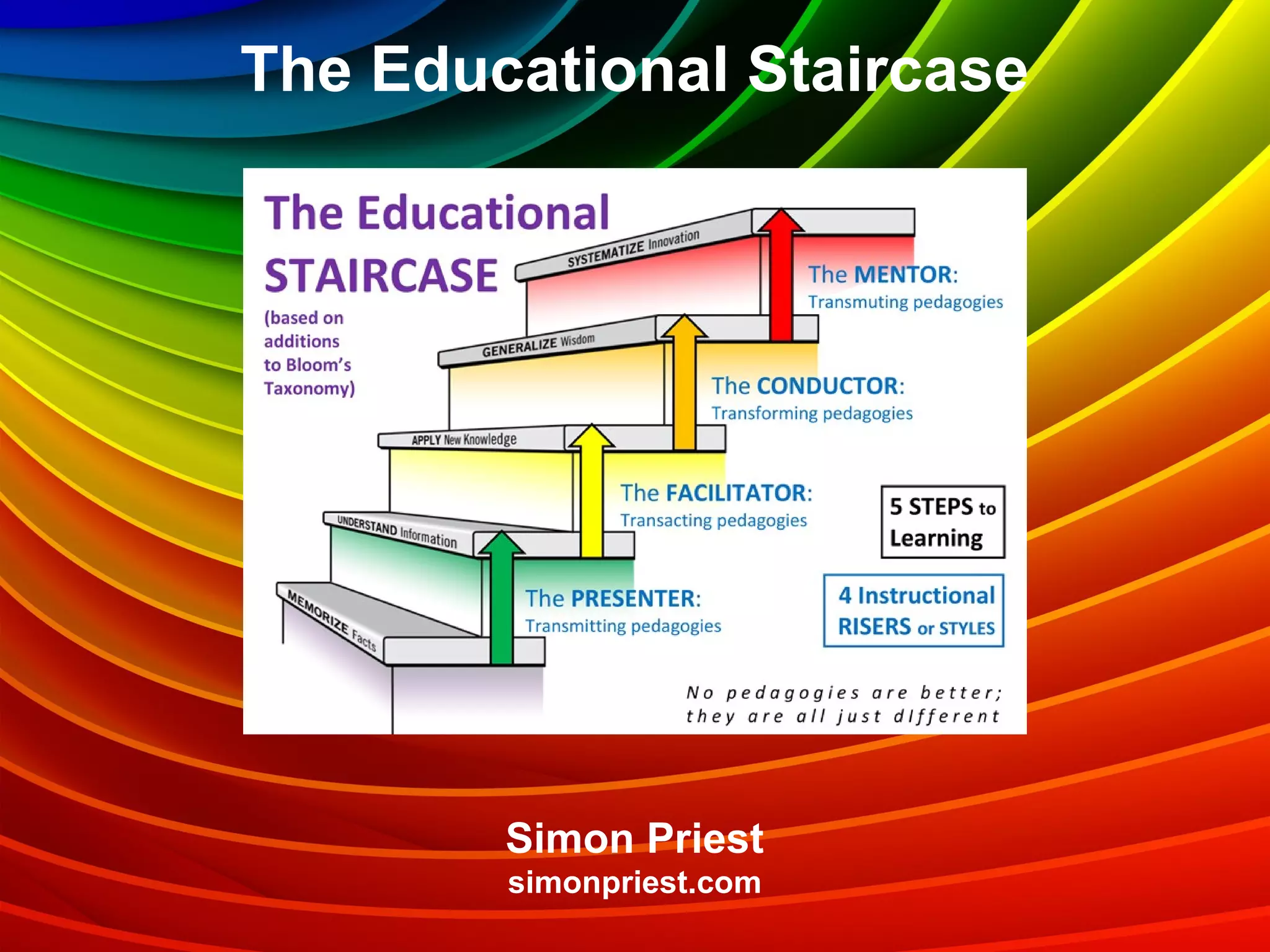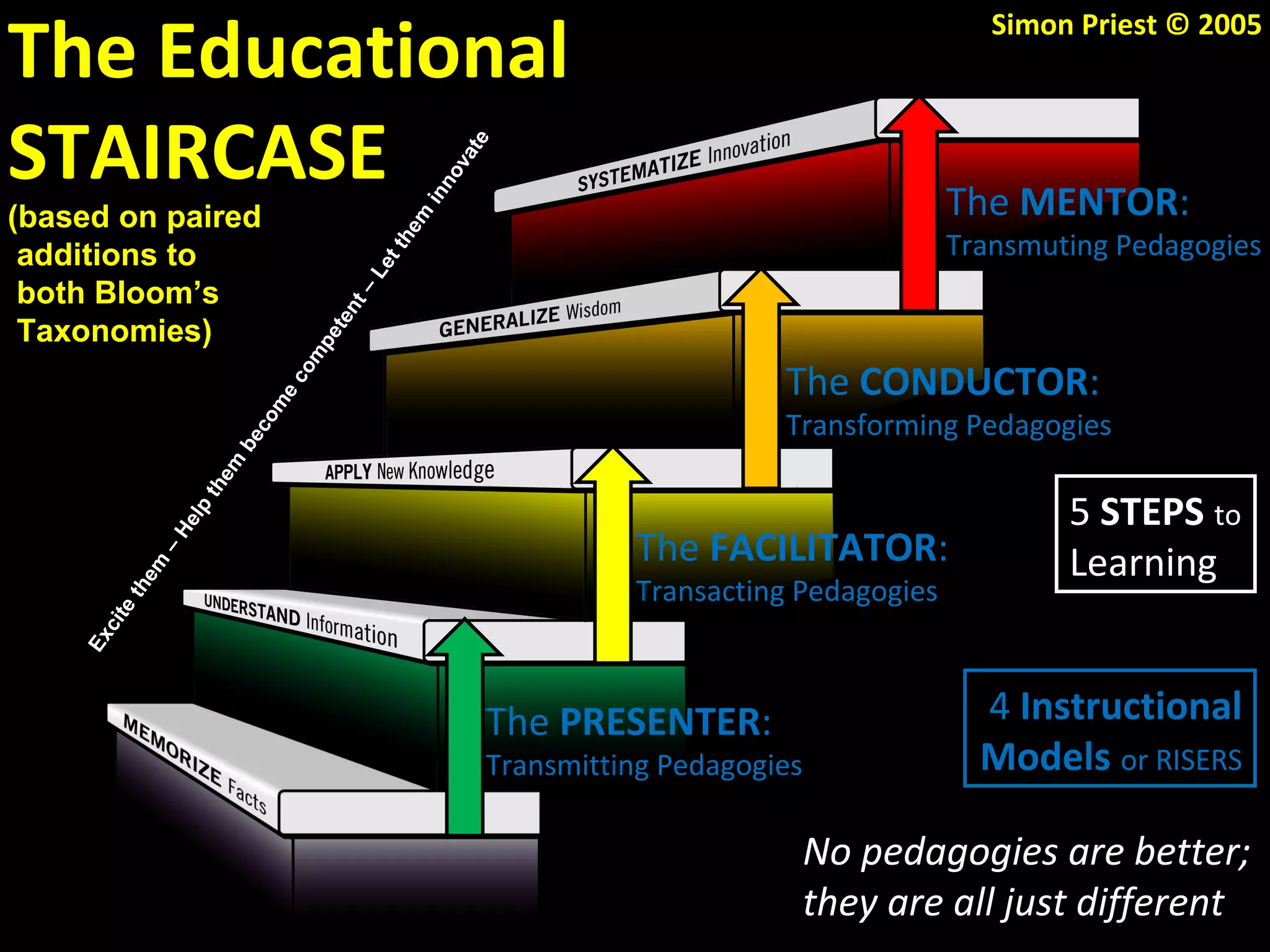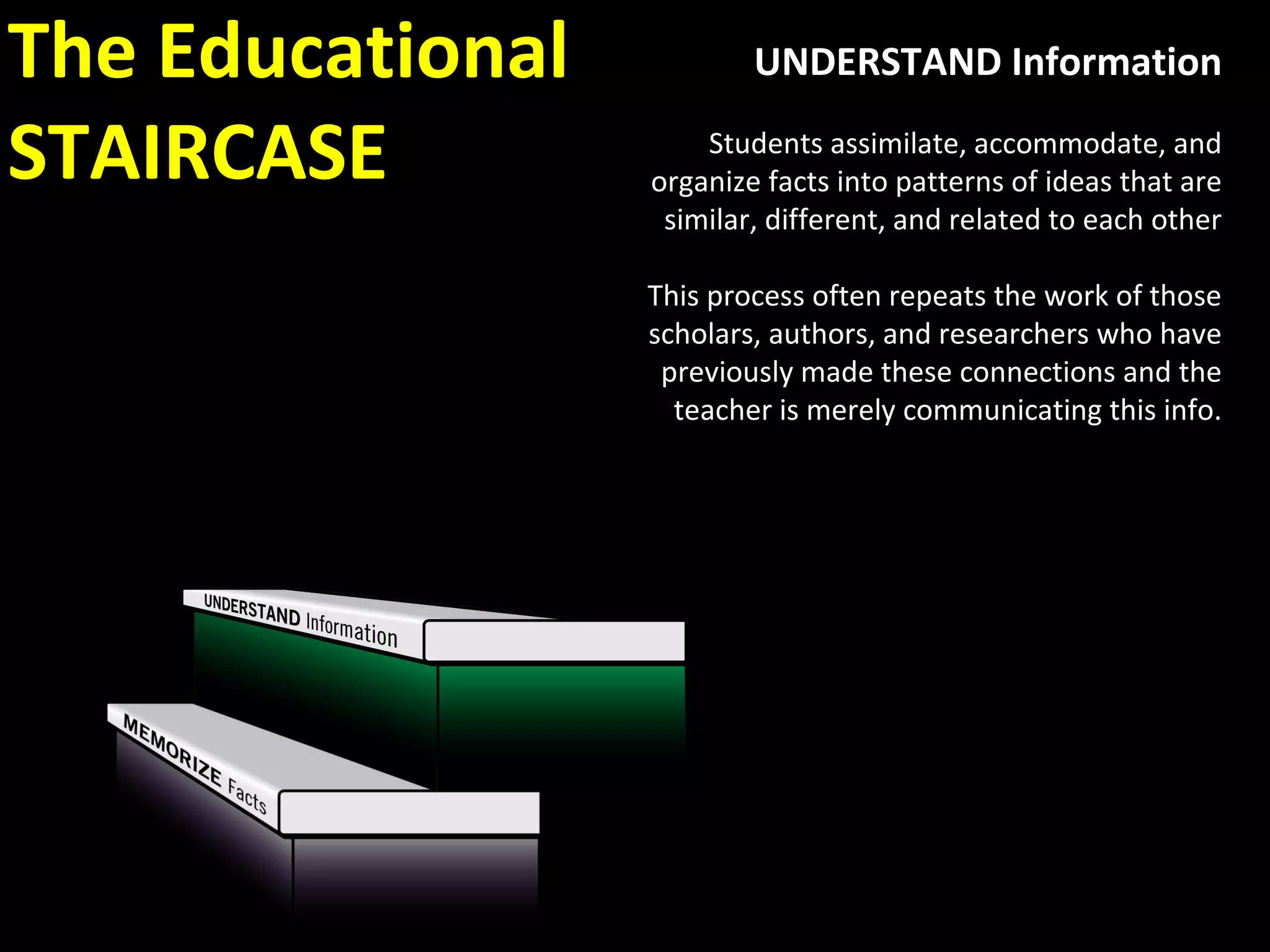The document discusses an educational framework termed the 'educational staircase', outlining different pedagogical approaches: transmitting, transacting, transforming, and transmuting. Each approach corresponds to a specific learning intention and instructional model, emphasizing the importance of memorization, understanding, application, generalization, and innovation in the learning process. It also highlights the roles of educators and the varying environments and techniques that facilitate learning across different settings.







































